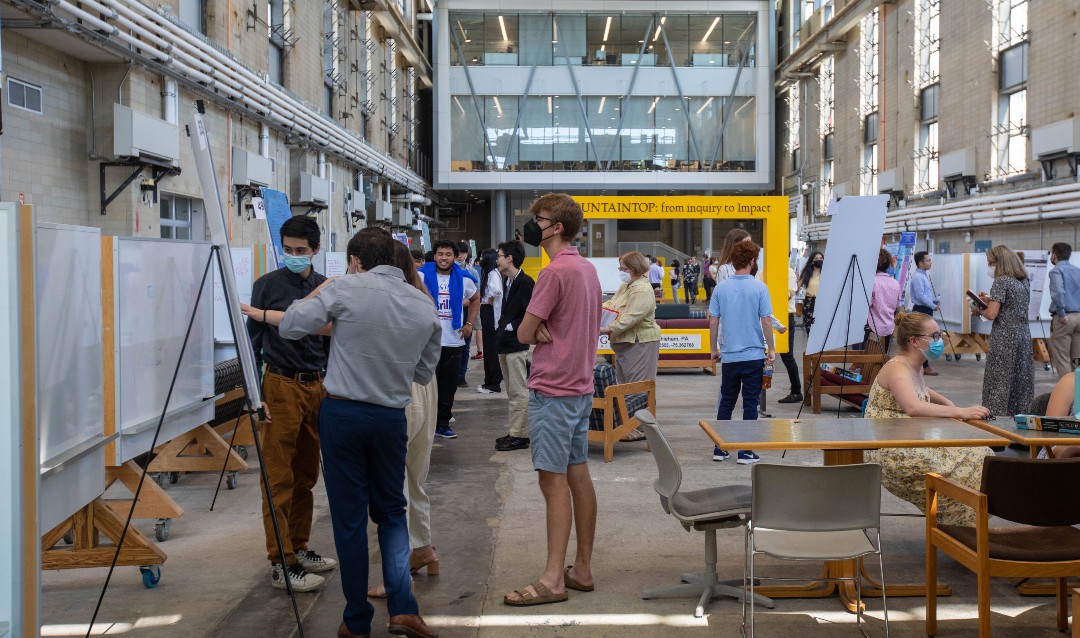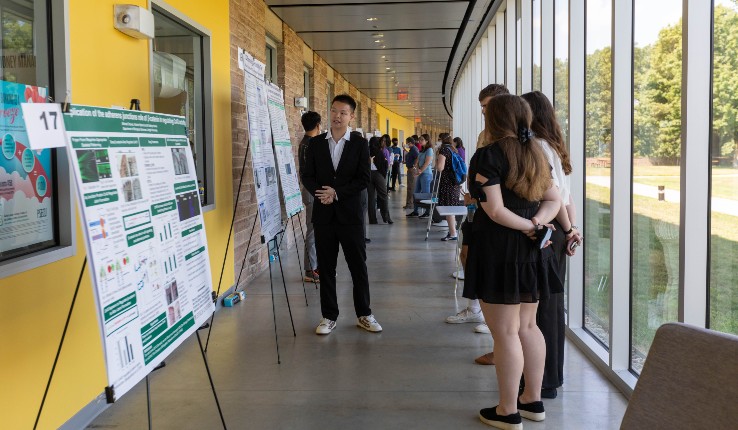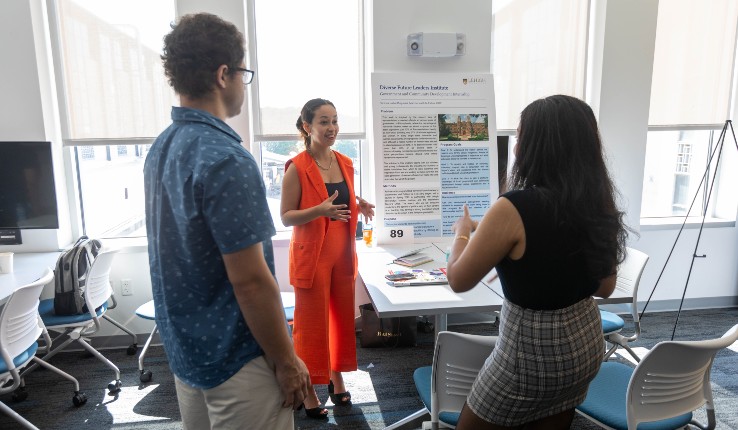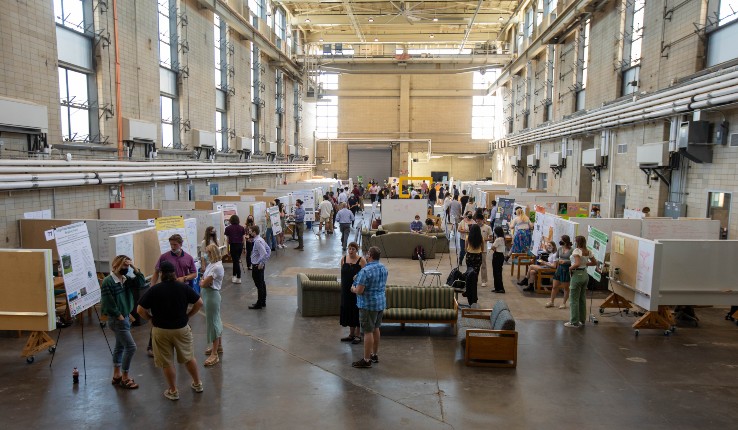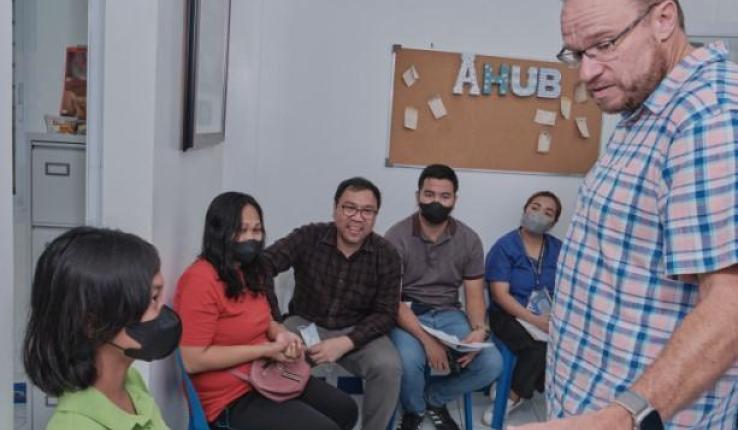In a glass-enclosed room at Building C, Lehigh students Dominic Ammirato ’23, Alex Witt ’23, Michael Fitzgerald ’23 and Karien Li ’24 demonstrated “Flying Swarms,” a project that aims to use autonomous aerial robots to transport life-saving supplies to remote areas and promote social justice throughout the world.
The students, working with David Saldaña, assistant professor of computer science and engineering, began the project as part of Creative Inquiry’s Mountaintop Summer Experience. Vice Provost for Creative Inquiry Khanjan Mehta and Administrative Director Bill Whitney lead the Mountaintop Summer Experience.
Ammirato said the aerial robots can be used for “delivering goods, resources, anything that might be needed, to communities or locations that are hard to reach by conventional means.” If roads are not fully functional because of a natural disaster, he said for example, and conditions are unsafe for a helicopter drop, the robots could deliver needed supplies without putting any human life at risk. The intent is to not use the robots for commercial purposes, he said.
The team took a conventional quadrotor aerial vehicle and attached a helium-filled envelope to the drone’s top, which, the students said, will increase its stability, flight duration and payload.
“There are plenty of rural communities around the world where infrastructure is very poor,” Fitzgerald said. “The devices we're creating are meant to be autonomous—minimal human control while they're flying and you don't need a constant connection to the ground. … Our big goal is to let these remote communities achieve something that previously was very difficult.”
In another area of Building C, Caroline Pritchard ’22 explained her research on how heterogeneity in protein-making machinery in cells can dramatically impact animal physiology and development. Working with Ware, Pritchard studies the functions of a group of ribosomal proteins (components of the protein-making machinery) in fruit flies and how loss of these proteins affects normal developmental processes. The research is a model for understanding deficiencies in a group of human diseases called ribosomopathies and an array of human conditions arising from a spectrum of signaling pathway defects, Pritchard said.
Other teams of students, working with Simon, discussed their research into identifying biomarkers and treatments for traumatic brain injuries, which are a major public health problem because the injury can lead to cognitive issues and increase the risk of neurodegenerative disease later in life. These injuries can range from mild to severe, Mia Stevens ’23 and Josh Bellon ’23 explained. The more severe brain injuries are the leading cause of disability and death for people under age 35 and over age 65. In the biomarker study, the student researchers examined whether Neurofilament Light Chain can serve as a reliable plasma biomarker of mild repetitive brain injury.
Lehigh’s first Marcon fellows, a new initiative at the university that aims to promote social justice, also showcased their projects. Holona Ochs, associate professor of political science, is director of the Marcon Institute.
Marcon Fellow Victoria Isabel Drzymala ’23 is developing an internship program that would help create opportunities for students from traditionally underrepresented communities to intern with local government officials. In its early stages, the partnership between Lehigh and the City of Bethlehem would launch in Spring 2023.
“My motivation for creating this project was drawn a little bit from my own experiences,” said Drzymala, in outlining her project, “Diverse Future Leaders in Government and Politics.” “It is very difficult to get an internship if you don't have connections or a network of some kind, especially for a student from an underrepresented background.”
The presentations that are part of the expo help students to be better and more effective communicators, an invaluable skill.
“We think this contributes to their professional maturity and gives them a competitive edge when they graduate,” Simon said.


